3rd International Workshop on Security, Privacy and Trust in Pervasive and Ubiquitous Computing (SecPerU’07), IEEE Computer Society, pp. 25-30, 2007. DOI
Abstract
Trust plays an important role in human life environments and virtual organizations. In the context of a network, trust may help its elements to decide whether another member of the same network is being uncooperative or malicious. Trust becomes quite important in self-configurable and autonomous systems, such as wireless sensor networks (WSN). However, very little effort has been done in the field of trust management in WSN. On the other hand, some efforts have been made in quite related fields such as Ad-hoc and P2P networks. In this paper we give an overview of existing trust management solutions, mainly those developed for Ad-Hoc and P2P networks and, more importantly, investigate their suitability to WSN. We also provide some guidelines to aid the development of trust management systems for WSN according to the nature of these networks.
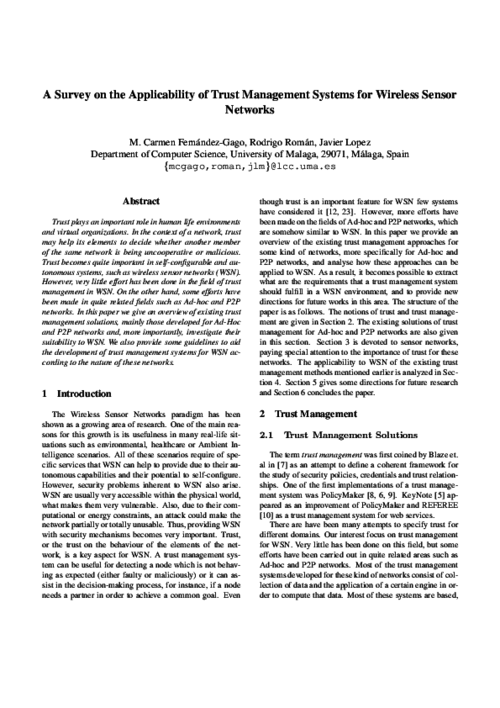
Computers and Mathematics with Applications, vol. 60, Elsevier, pp. 209-216, July, 2010. DOI
Abstract
When interactions among users of a system have to take place, for example, over the internet, establishing trust relationships among these users becomes crucial. However, the way this trust is established depends to a certain extent on the context where the interactions take place. Most of the time, trust is encoded as a numerical value that might not be very meaningful for a not very experienced user. In this paper we propose a model that takes into account the semantic and the computational sides of trust. This avoids users having to deal directly with the computational side; they instead deal with meaningful labels such as Bad or Good in a given context.
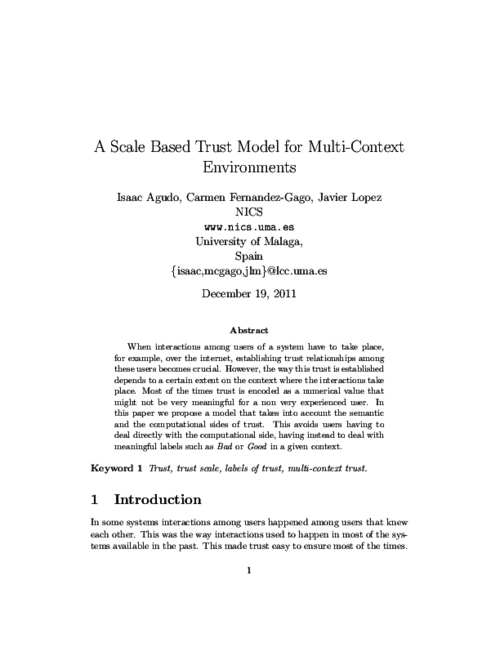
Security and Trust Management - 7th International Workshop, STM 2011
, vol. 7170, Springer, July 2012.
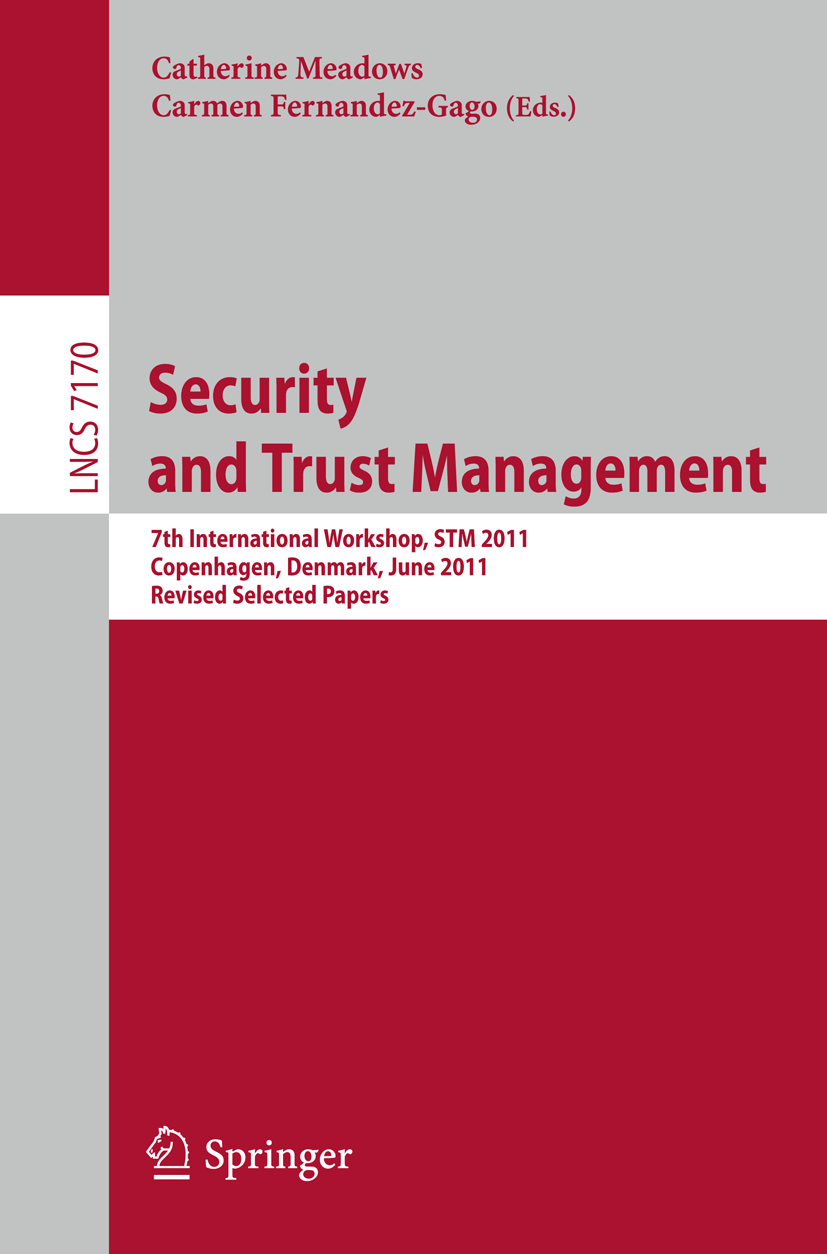 |  |
Proceedings of the Doctoral Symposium of the International Symposium on Engineering Secure Software and Systems (ESSoS-DS 2012), J. Cuellar, and N. Koch Eds., CEUR-WS 834, CEUR-WS, pp. 41-46, 2012.
Abstract
As the Future Internet arrives, more complex, service-based applications are spreading. These applications pose several challenges, including the huge amount of entities that must interact and their het- erogeneity. The success of these applications depends on the collaboration and communication of these entities, that might belong to different or- ganizations and administrative domains. Therefore, trust and reputation become two crucial issues. We propose the specification and design of a service-based security architecture that stresses the delivery of trust and reputation services to any application that might require them.
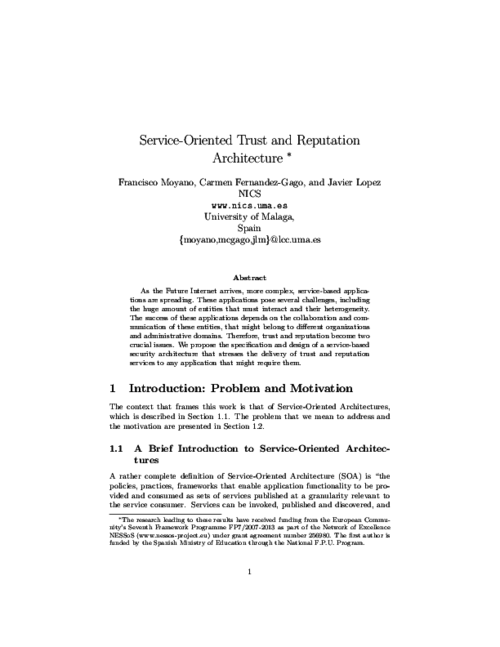
Mathematical and Computer Modelling, vol. 57, Elsevier, pp. 2583–2595, Jun 2013. DOI
Abstract
This work describes the design and implementation of an auction system using secure multiparty computation techniques. Our aim is to produce a system that is practical under actual field constraints on computation, memory, and communication. The underlying protocol is privacy-preserving, that is, the winning bid is determined without information about the losing bids leaking to either the auctioneer or other bidders. Practical implementation of the protocol is feasible using circuit-based cryptographic proofs along with additively homomorphic bit commitment. Moreover, we propose the development of a Proof Certificatestandard. These certificates convey sufficient information to recreate the cryptographic proofs and verify them offline.
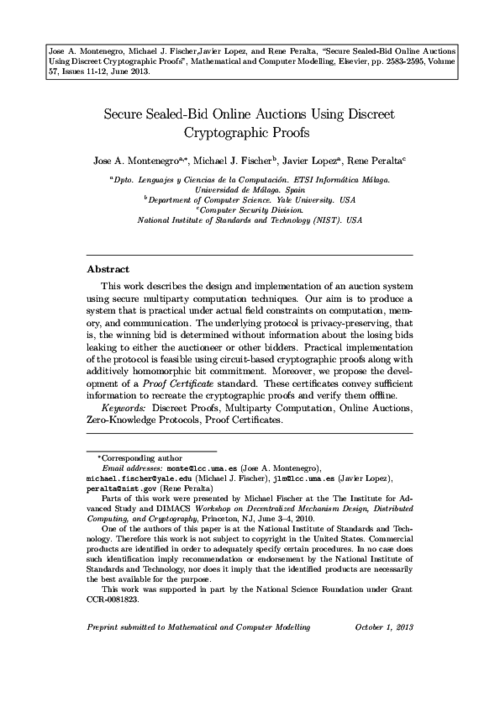
 ]
]